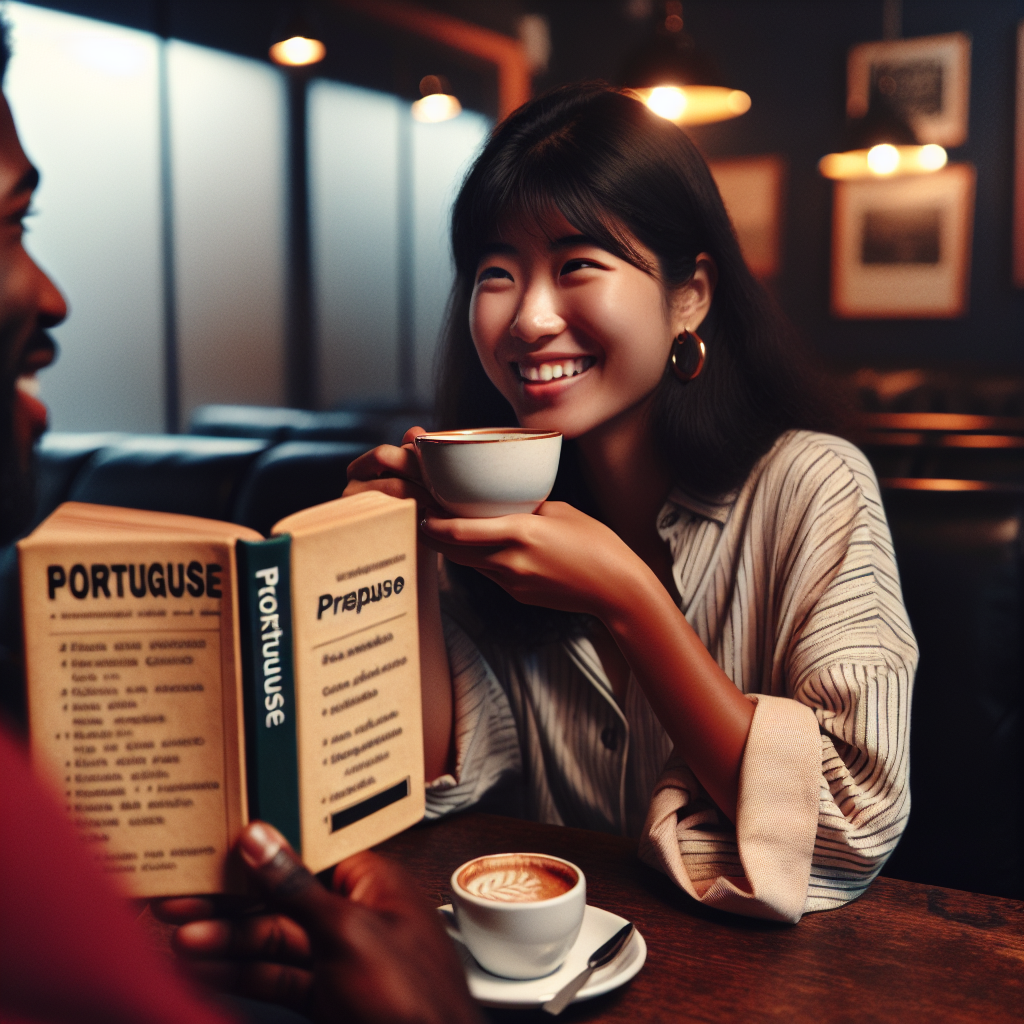Mastering Conversational Portuguese: A Closer Look at Language Exchange Sessions
In the globalized world we live in today, language exchange sessions have emerged as a prime method to learn new languages and foster international friendships. In this detailed analysis, we will delve into a particular session where native Spanish and English speakers come together to practice Portuguese conversational skills. The session is light-hearted and enjoyable, yet filled with educational nuggets. Let's break it down and see what we can gain from such a delightful learning method.
The Dynamics of Language Exchange
Language exchange sessions often revolve around participants taking turns to practice each other's languages. This dynamic is clearly evident in the session where the speakers—one native in Spanish and the other in English—attempt to converse in Portuguese. They discuss a range of topics, from hobbies and favorite foods to travel plans, offering a practical approach to language learning.
The Setup: Ice-Breaking Conversations
Starting with ice-breaker questions, the speakers engage in a discussion about their interests. Such a setup is crucial as it not only relaxes the participants but also sets a foundation for more complex dialogues. Through questions like "O que você gosta de fazer no seu tempo livre?" (What do you like to do in your free time?) and "Qual sua comida favorita?" (What's your favorite food?), learners can practice common phrases and vocabulary in a casual setting.
Using familiar topics allows students to draw from their own experiences, making it easier to recall vocabulary and formulate responses. In this session, one speaker mentions enjoying playing the piano, while another reveals a fondness for playing soccer, known in Portuguese as "jogar futebol."
Deepening the Conversation
Discussing Foods and Cultural Nuances
Exploring favorite foods opens up a rich avenue for language learners to understand cultural nuances. When the conversation turns to Brazilian cuisine, with dishes like "frango a passarinho" (a popular Brazilian chicken dish), it offers a dual lesson in language and culture. Such exchanges are invaluable, as they go beyond rote memorization, providing context and emotional connection to the language.
The ability to say "Eu não experimentei" (I haven't tried it) in response demonstrates a practical use of the past tense in everyday conversation. Language exchange participants benefit from such interactions as they mimic real-life scenarios, making the learning experience more immersive and authentic.
Planning Future Adventures
Talking About Travel Plans
A particularly engaging part of the session is when the conversation shifts to travel plans. Discussing future trips is not only exciting but also serves as an excellent practice for future tense constructs. The phrase "Eu gostaria de viajar para Austrália" (I would like to travel to Australia) combines the use of "gostaria," a conditional form, with an infinitive verb, constructing a grammatically correct and useful sentence.
This segment of the conversation highlights how practical language exchange can be. By focusing on plans and aspirations, learners can practice speaking about their goals and dreams in Portuguese, enhancing both their grammatical skills and their ability to express personal interests.
Learning Polite Expressions
To smoothly close conversations, it is essential to know polite expressions and farewells. In the session, the speakers practice saying "Tenha um bom dia" (Have a good day), which is a fundamental phrase in Portuguese. Such polite expressions are crucial in any language as they reflect cultural etiquette and help maintain pleasant interactions.
Enhancing the Learning Experience
The Role of Context and Repetition
Repetition and context are key components of language acquisition. Throughout the session, repetition is used effectively to reinforce new vocabulary and phrases. For instance, repeated use of phrases like "Eu gostaria" helps embed these structures in the learners' memory. Moreover, discussing familiar topics ensures that learners can easily relate to the conversation, making it more memorable.
Utilizing Multimedia Resources
Incorporating multimedia resources, such as video recordings of language exchange sessions, can significantly enhance the learning experience. Watching real interactions helps learners understand pronunciation, intonation, and the natural flow of conversation. Additionally, viewers can pause and replay parts of the video to grasp difficult phrases better.
For more useful tips on language learning, check out FluentU which offers engaging articles and resources.
Conclusion: Embracing the Joy of Language Exchange
In conclusion, language exchange sessions provide an enriching platform for learning new languages. The friendly banter and practical topics discussed in the session we analyzed serve as a testament to the effectiveness of this method. Participants not only practice speaking but also immerse themselves in cultural exchanges, making the learning process both educational and enjoyable.
Whether you're learning Portuguese to travel, work, or simply to broaden your horizons, engaging in language exchange can make a significant difference. The key is to embrace the process, enjoy the conversations, and keep practicing.
For additional information on improving your Portuguese language skills, BBC Languages is a valuable resource with numerous learning tools and courses.
Language learning is a continuous journey, and sessions like the one we've analyzed are milestones along the way. So, find a language partner, dive into conversations, and watch your skills blossom!
By embracing the spirit of this session, you too can make language learning a fun and rewarding adventure. Happy learning!
Feel free to reach out to me at matthewrobertbell@gmail.com for more insights on mastering Portuguese or any other language!
Related News
- Exploring the Names of Common Objects in Spanish
- The Art of Seamless Translation: A Deep Dive into AI-Powered Language Bridging
- Unlocking the True Catalysts of Learning: Beyond the Classroom Walls
- Mastering ChatGPT: Elevating Your AI Game
- Engaging Conversations and Culinary Delights: A Guide to Breaking Awkward Silences
